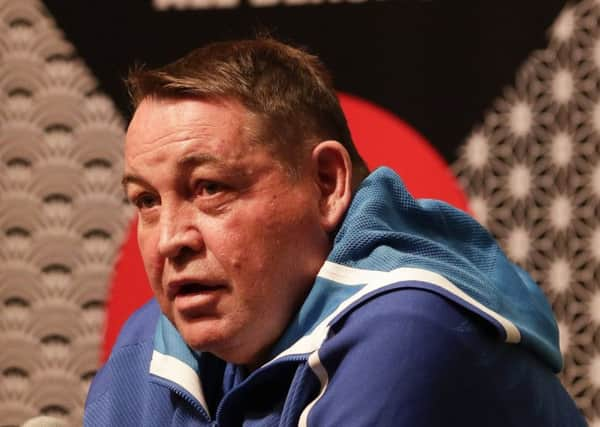Allan Massie: Coaches now to the forefront but suffer from expectations and impatience


Rugby union for a long time took a dim view of coaching; it smacked of professionalism. The 1966 Lions in Australia and New Zealand had no coach. The organisation of training and practice sessions was the responsibility of the captain. Things began to change soon after. Carwyn James – who was credited rightly, I think, with having master-minded the Lions’ success in New Zealand in 1971 – was the first British or Irish coach to be at least touched by celebrity. Even so, he never coached Wales, there being as much politicking in the Welsh Rugby Union as in the Labour Party.
The Scottish Rugby Union, obstinately conservative, held out a little longer against the idea of a coach for the national team, and when it did yield, gave Bill Dickinson the marvellous title “adviser to the captain”, to make it clear he could suggest, but not command. Moreover he was denied what is often – rightly – regarded as the most important part of a national – or indeed club – coach’s job: selection. That remained the responsibility of the panel of amateur selectors. In any case, the national coach’s influence remained limited for a long time. In the domestic season there were few training camps, even though strong-minded coaches managed to squeeze more in, usually on Sundays, once provoking a wry observation from Gala’s Derek White, by then working in London and playing for London Scottish. He didn’t know which was more daunting: telling his wife Jim Telfer has summoned him for another training day or telling Telfer he couldn’t make it.
Advertisement
Hide AdAdvertisement
Hide AdThe celebrity coach of the 1980s was Australia’s Alan Jones, credited with master-minding the Wallabies’ 1984 Grand Slam tour of the Five Nations. It was Alan Jones who remarked “one day a rooster, the next a feather duster”, as true of coaches as of players. Reputations fluctuate, depending on success. A year ago, Ireland’s Joe Schmidt was hailed as the game’s top rooster; Ireland’s failure in Japan leaves him looking more like a feather duster. This is of course unfair, though you may think his judgment in selection not as good as it was.
Evaluating coaches is difficult. Clive Woodward coached England to the only World Cup victory for any northern hemisphere team to date. Remarkable, clearly a genius, until two years later he failed as coach of the Lions in New Zealand. What do you make of that? England were the best team in 2003; the 2005 Lions were not very good. How much of the success of one and the failure of the other can be attributed to Sir Clive?
Successful coaches like successful football managers –New Zealand’s Steve Hansen or Manchester United’s Alex Ferguson – enjoy a long and apparently secure tenure. Are they successful because they are secure or secure because they are successful? Bill Tilden , the American tennis champion of the 1920s, said: “never change a winning game; always change a losing one.”
New Zealand have been loyal to their coaches. Steve Hansen has been there, first as assistant to Graham Henry and then as boss for a long time now. The All Blacks keep winning. So there’s been no reason for change. Hansen reigns calm and serene. In contrast, Twickenham, like Murrayfield and the head office of the French Rugby Union, have an ever-open doorway marked Exit. Martin Johnson was England’s World Cup-winning captain. He was given one World Cup as coach, and then out. Stuart Lancaster put together a very good England team, still the basis of Eddie Jones’s one today, but failure in 2015 saw Lancaster given the order of the boot. No loyalty, precious little sympathy and no suggestion that the experience of failure in 2015 might have made him a better coach in 2019. After all, one way you develop is by learning from your mistakes.
Warren Gatland’s story is interesting and should be significant. He has been in charge of Wales for ten years. There have been downs as well as ups, and, given the Welsh Rugby Union’s long-lasting record of squabbling like the famous Kilkenny cats and the Welsh public demand for instant success – a demand echoed in the media, this consistency is admirable and surprising. Gatland has himself been consistent in selection and in the style in which Wales play. His reward is a semi-final against South Africa and the chance of a first World Cup final.
This will be the end of the Gatland era, with his assistants, Shaun Edwards and Rob Howley also departing. How Wales do in the spring with a new coaching team in charge may say something about the influence and importance of coaches.